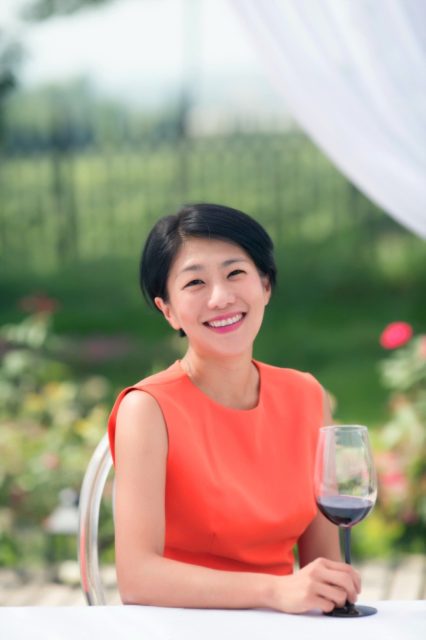This website uses cookies so that we can provide you with the best user experience possible. Cookie information is stored in your browser and performs functions such as recognising you when you return to our website and helping our team to understand which sections of the website you find most interesting and useful.
Why extraneous packaging matters for wine in China
During a discussion on sustainable drinks retailing during this month’s Master of Wine symposium in Germany, president of China’s Grace Vineyard, Judy Chan, told attendees why extraneous packaging matters for her customers.

Speaking to attendees at the event on 1 July, which was held over four days in Wiesbaden, Chan said that it was harder in China to make a switch to lighter bottles – a move gradually gaining momentum among producers in other parts of the world – before commenting that adding extraneous packaging had actually boosted sales for her wine business.
Indeed, Chan told the room of 500 delegates – including 120 Masters of Wine – that paring back the packaging on wine in China could be commercial suicide, when presenting her views on sustainable retailing from a producer’s perspective, and one that supplies the Chinese market with domestically-made wine.
Speaking alongside Marcus Irhe from Sweden’s Systembolaget; Doug Bell from Whole Foods Market, and Prof. Simone Loose from Geisenheim University, Chan began her presentation by pointing out that “the concept of wine for the Chinese is pretty different from Western society,” commenting that “wine is not an everyday beverage, it is a treat; it is high end.”
Continuing, she recorded, stressing wine’s special status in China, “You don’t drink it at home with your partner when watching TV, wine is usually consumed in a social setting, or given as a gift.”
As a result, although she expressed her full support for lighter bottles and sustainable approaches to wine production, she said that the special and high-end status of wine in China was something to be cherished, and that it could be dangerous to promote the product as a mainstream drink by doing away with upmarket packaging cues.
“My customers want to dress up for dinner, they don’t want to wear shorts and flip-flops; even when it’s hot, they want to wear a jacket, and why should I tell them they shouldn’t,” she said.
She then revealed that she’d actually added more material to her packaging, and her sales had benefitted.
“I had never provided a gift box, although my customers kept asking, I always refused, until last year, when business was really bad, so I did it for one client and I don’t know whether I’m happy or sad, but sales are up 25%,” she recorded, adding, “No piece of marketing or promotion has been as effective as using a gift box.”
Looking back, she drew attention to pioneering moves made by Grace Vineyards in China, which had backfired, before saying that she couldn’t move to lighter bottles for practical reasons.
“We were the first in China to use screwcaps, but it was completely rejected, nobody bought it,” she said.
Continuing, she recorded, “And you can’t find lighter bottles in China, the bottles you find in China are heavy: that’s what the producer is buying because that’s what the market likes, and for us to import it [lighter bottles], price-wise it doesn’t make sense; we can’t afford it.”
Concluding her presentation, she stressed her attempts to be more sustainable were “not all negative”.
“Our gift box is only paper – there is no plastic moulding inside – and we set targets for water usage; our winery is powered by solar energy, and we don’t print a catalogue anymore,” she said.
She also observed that “the younger generation are very different,” suggesting that a desire for more sustainably-packaged wine will emerge with time.
However, she stated, “We are not there year, it is all about pace and timing: you can’t afford to be way too ahead.”

